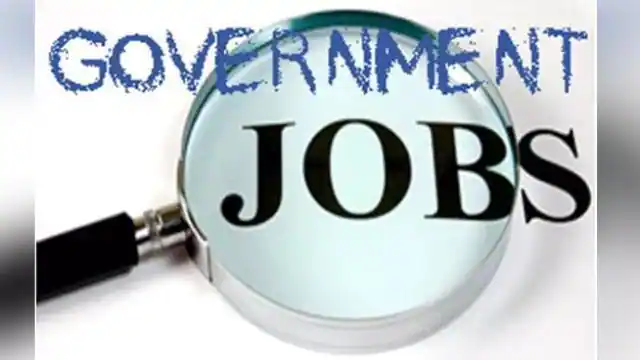Table of Contents
ToggleWorking for the government often carries a certain stigma or misconception. Some may view it as bureaucratic or slow-paced, while others may believe it lacks the perks and benefits of private sector jobs. However, there’s a plethora of hidden benefits that come with being a government employee that often go unnoticed or underappreciated. In this article, we’ll delve into the lesser-known advantages of working for the government, ranging from job security and competitive pay to valuable retirement benefits and opportunities for public service.
Job Security
One of the most significant benefits of working for the government is job security. Unlike many private sector jobs that may be subject to fluctuations in the economy or corporate restructuring, government positions typically offer stability and long-term employment prospects. Government agencies are less likely to undergo layoffs or downsizing, providing employees with a sense of security and peace of mind.
Also Read : How To Get A Job
Competitive Pay

Contrary to popular belief, government jobs often offer competitive salaries and benefits. While it’s true that some entry-level government positions may have lower starting salaries compared to their private sector counterparts, government employees often enjoy regular salary increases, cost-of-living adjustments, and comprehensive benefits packages, including health insurance, retirement plans, and paid time off.
Also Read : How To Respectfully Decline A Job Offer
Generous Benefits Packages
Government employees typically receive generous benefits packages that extend beyond basic healthcare coverage. These packages may include dental and vision insurance, life insurance, disability coverage, and flexible spending accounts. Additionally, government agencies often provide retirement benefits through defined benefit pension plans or 401(k) savings plans with employer matching contributions, ensuring financial security in retirement.
Also Read : How To Decline A Job Offer
Work-Life Balance
Government agencies are known for promoting a healthy work-life balance, offering flexible work arrangements such as telecommuting, flexible scheduling, and compressed workweeks. Employees may have the option to adjust their work hours to accommodate personal commitments or pursue further education while maintaining their government employment.
Opportunities for Advancement

Government organizations offer various opportunities for career advancement and professional development. Employees can take advantage of training programs, workshops, and tuition reimbursement programs to enhance their skills and qualifications. Additionally, government agencies often prioritize promoting from within, providing employees with opportunities to climb the career ladder and take on leadership roles.
Also Read : How To Find A Job
Job Diversity
Government employment encompasses a wide range of career fields and job roles, offering opportunities for individuals with diverse backgrounds, skills, and interests. From healthcare and law enforcement to environmental protection and public administration, there’s a government job to suit almost every career path. This diversity allows employees to explore different roles within the same organization or transition between agencies while staying within the public sector.
Meaningful Work

Working for the government offers the opportunity to make a meaningful impact on society and contribute to the greater good. Government employees play a vital role in delivering essential services to the public, ranging from healthcare and education to infrastructure and public safety. Whether they’re working in healthcare, social services, environmental protection, or law enforcement, government employees have the satisfaction of knowing that their work directly benefits their communities and improves people’s lives.
Also Read : How To Make Money Without A Job
Job Stability During Economic Downturns
During economic downturns or recessions, government employment can provide a safe harbor for workers. While private sector companies may be forced to lay off employees or implement cost-cutting measures, government agencies continue to operate and provide essential services to the public. This stability can be particularly reassuring for employees facing uncertain economic conditions.
Conclusion
Despite the common misconceptions surrounding government employment, there are numerous hidden benefits that make it an attractive career choice. From job security and competitive pay to generous benefits packages and opportunities for advancement, working for the government offers a range of advantages that are often overlooked. Additionally, government employees have the opportunity to engage in meaningful work that directly impacts society and contributes to the common good. Overall, exploring a career in the public sector can lead to a fulfilling and rewarding professional experience.
Also Refer : Unlocking Success: Steps To Embrace A Job Offer
FAQs
What types of jobs are available in government employment?
Government employment offers a diverse range of career fields, including healthcare, education, law enforcement, environmental protection, public administration, and more.
How does government job security compare to the private sector?
Government jobs typically offer greater job security compared to the private sector, as government agencies are less likely to undergo layoffs or downsizing during economic downturns.
What benefits do government employees receive?
Government employees often receive comprehensive benefits packages, including healthcare coverage, retirement plans, life insurance, disability coverage, and flexible spending accounts.
Are there opportunities for career advancement in government employment?
Yes, government organizations provide various opportunities for career advancement and professional development through training programs, workshops, tuition reimbursement, and promotion from within.
How does government work-life balance compare to the private sector?
Government agencies prioritize promoting a healthy work-life balance and often offer flexible work arrangements such as telecommuting, flexible scheduling, and compressed workweeks to accommodate personal commitments.
Image Source : Freepik





